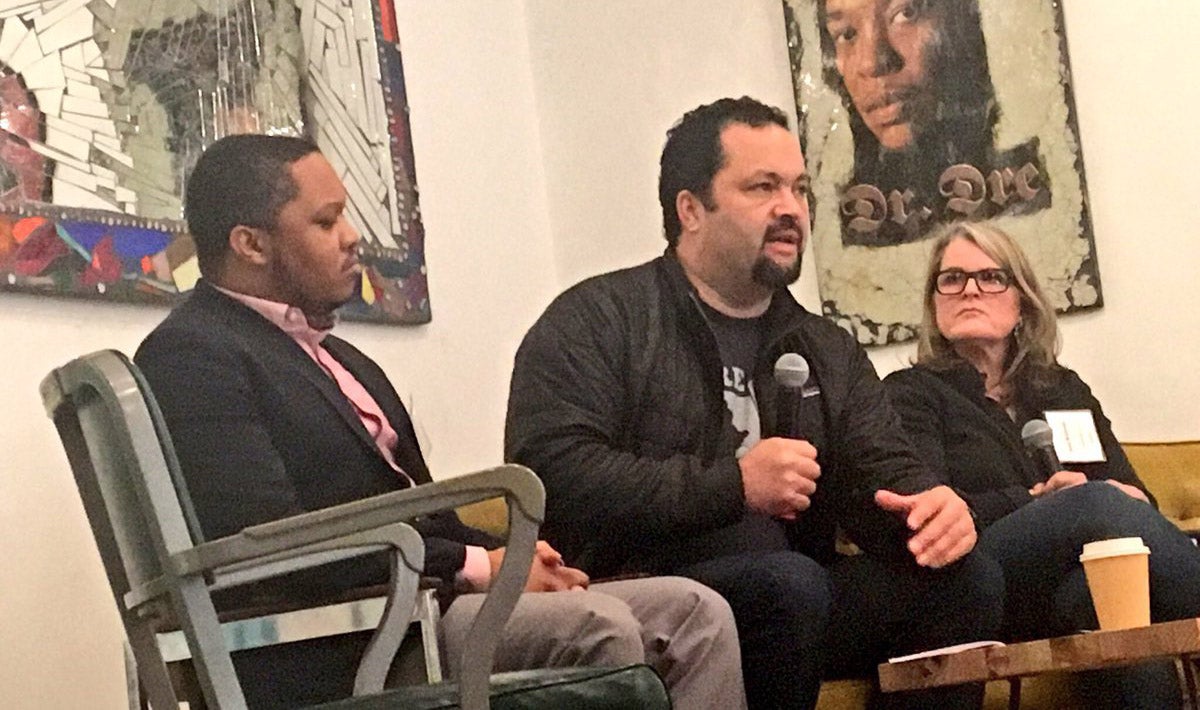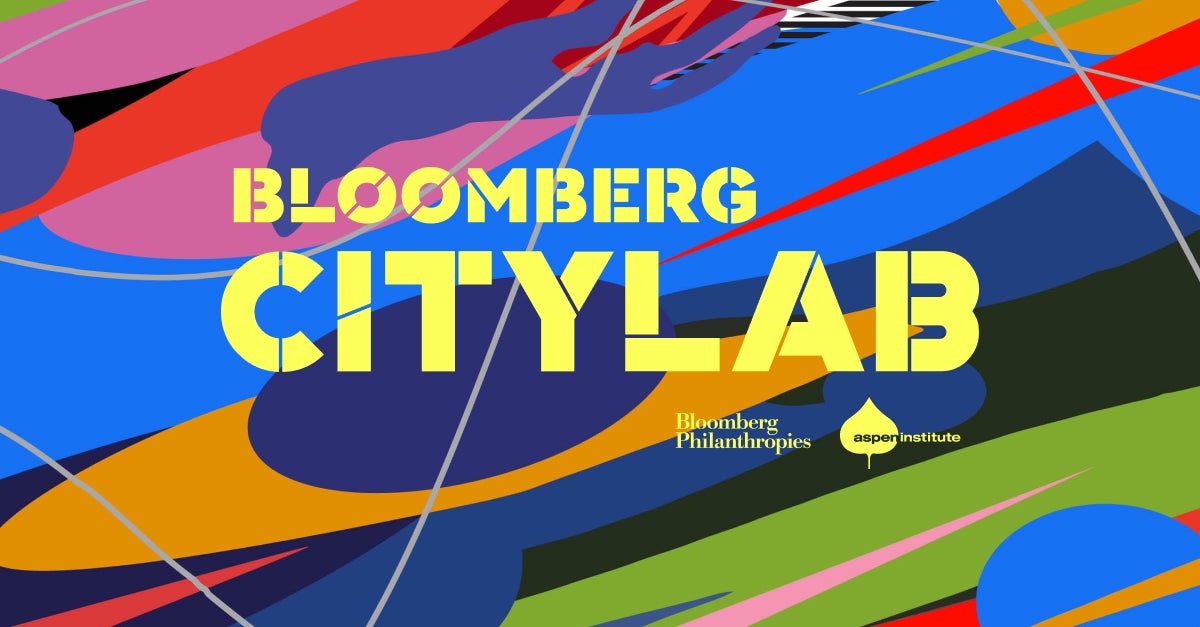Recently, the Aspen Center for Urban Innovation, Invested Impact, Impact Hub Baltimore and Art in Praxis hosted a day-long event in Baltimore to consider the barriers between talented, innovative and inventive individuals and the capital that would make their ideas flourish.
Participants offered the following six steps towards removing these barriers and creating an innovation ecosystem that supports inclusion and provides tangible opportunities:
Foundations should partner with community.
John Brothers of T. Rowe Price Foundation told foundations to act more like football linemen. Brothers explained that while foundations often take a top-down approach with grantees, they should shift to a less prominent yet still formidable role. Linemen are self-effacing, stabilizing forces in a chaotic and brutal sport. As grantmakers, foundations also provide a steady force to withstand market inconsistencies. Moreover, linemen rarely if ever score points themselves even though every point depends on their blocking and tackling. While the Jumbotron will rarely display their sweat and toil, linemen serve as key infrastructure to the game, hidden in plain sight. For foundations to be truly effective and catalyze social change, they need to team up with the local community and become great listeners.
Both communities and foundations have superpowers; use them.
Foundations and non-profits each have superpowers: unique sets of skills and resources that set them apart from other institutions. Brothers explained that communities’ superpower is to “know what is happening on the ground” while foundations can connect with larger institutions or develop cross-sector relationships that smaller local organizations can’t. An effective partnership between nonprofits and foundations requires that both entities understand their strengths and limitations. As Brothers urged, “communities need strong organizations” at various levels of the spectrum. For foundations and non-profits to work together effectively, they need to use their superpowers to encourage social change and support economic development.
We need to upend the idea philanthropy is risk taking versus necessary fuel to build thriving communities @ADForrester #UrbInn17 pic.twitter.com/VNo42FcqY6
— Khalilah M. Harris (@Ed2BeFree) February 15, 2017
Participants from Left to Right: John Brothers, T. Rowe Price Foundation; Shawn Escoffery, Surdna Foundation; Alex Forrester, Rising Tide Capital; Rodney Foxworth, Invested Impact.
Rethink assets and job creators.
Developing new approaches to funding non-profits requires a shift in perspective — funders and financial institutions need to see communities and neighborhoods differently. Rethinking this relationship means that grantees are not only thought of as beneficiaries of philanthropic dollars, but also as assets. “We try to push entrepreneurs not only to run successful businesses, but to also revitalize their neighborhood in the process,” said Shawn Escoffery of the Surdna Foundation. He suggested that foundations should work to “amplify the voices of community.”
Be patient because structural changes require grit and endurance.
Transformation takes time and dedication. Alex Forrester of Rising Tide Capital pointed out that money alone will not create the conditions for productive economic development. Forrester said that philanthropy can act as a fuel to bring about change. In addition to direct grantmaking, foundations should “invest in structures of knowledge and social capital to prepare the way for finance to be catalytic,” he said, giving an example of how Rising Tide’s business programs put individuals with different educational backgrounds and business experiences together in the same room. These types of encounters are important building blocks that contribute to the “knowledge capital, social capital and finance capital” needed to help people succeed, expand social networking opportunities and exchange resources.
How are CDFIs and similar entities tackling the lack of access to capital for people of color? #UrbInn17 pic.twitter.com/NwnyLz7nhD
— Invested Impact (@InvestedImpact) February 15, 2017
Participants from Left to Right: Dan Letendre, Bank of America; Jon Aram, Next Street Financial; Michael Jeans, Growth Opportunity Partners; Jessica Feingold, Kiva; Derrick Braziel, MORTAR; and Connie Evans, Association for Enterprise Opportunity
Build trust and repair disconnections.
Philanthropy is by no means the only actor in the innovation and entrepreneurial ecosystem. Financial institutions also play a significant role, particularly as sources of capital for would-be entrepreneurs. Those financial institutions need to do more to repair disconnections in communities and build trust, which is critical to expanding access to capital for small business owners of color. Trust is a process that is forward thinking and borne out of meaningful actions. Michael Jeans of Growth Opportunity Partners emphasized the need for financial institutions to create tangible “access points” that provide opportunities for small businesses to create sustainable wage-jobs rather than low-wage employment, which drags down the potential growth of communities. When these types of opportunities are not made, available trust is weakened or in some cases broken. Jeans insisted that financial institutions should look to empower small business owners through efforts that give entrepreneurs decision-making power and the room to contribute or participate in diverse ways. “If you can’t empower the people you hire,” he said, “how can the community believe there is faith and trust in them?”
If you enrich individuals, you empower businesses and improve communities.
Since family and friends often provide start-up funds for small businesses, individuals without capital-rich networks remain insufficiently funded. Business accelerators and other types of organizations can play an important role in broadening access points for those who have have smart ideas but don’t have startup funds. Online platform Kiva, for example, provides startup funds up to $10,000. Kiva draws on its international experience to provide loans to entrepreneurs by using a range of criteria that is not explicitly tied to credit worthiness, but with other benchmarks like social underwriting. Derrick Braziel of MORTAR in Cincinnati struggled to obtain startup funds himself, and that experience inspired him and two others to support entrepreneurs in the Over-the-Rhine neighborhood. Improving access to financial tools for small business owners and social entrepreneurs not only benefits individuals, but can spread from grantees to the local communities they serve.


